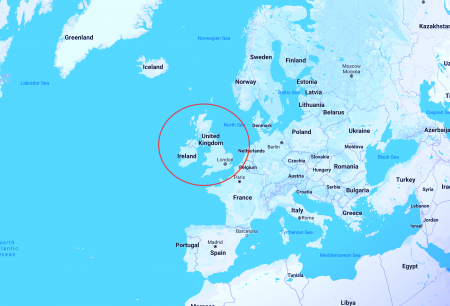The Real Cost of Addiction
I was looking at some back issues of my local paper, the Dundee Courier, one morning and I read about the psychiatric nurse who was “smelling of alcohol” at work and was struck off for grossly inappropriate behaviour; the drug addict sent to jail for 6 months for brandishing a meat cleaver in the street; the addict who received a thousand hours of treatment at the cost of £100,000 to the taxpayer; the drug addicts whose dogs attack people; and the addict who deliberately got himself arrested and jailed for four months.
I then looked at the website of my local paper and read about the drug addict who “was jailed for 12 months after he admitted being responsible for a string of car break-ins across Perth.” This case was unusual in that the criminal’s drug addiction was mentioned in court and reported in the newspaper: “Solicitor David Holmes said his 42-year-old client had long-standing problems with drug addiction.”
How much of this burglary, robbery, muggings and violence is committed by people looking for means to fuel their addiction, or by those who are “under the influence”? Is this question even being asked? I have not come across any statistics that correlate these various crimes to addiction.
And what about car accidents? We all know about drunk driving but I wonder how long before the term “drug driving” comes into use. This report from the Dundee Courier says, “Authorities warn damage caused by drug-driving is likely to be worse than official figures suggest.” Over 300 people in Tayside and Fife have been caught driving under the influence of drugs over the last five years.” The report also says it is very difficult to test for drugs at the time of an accident and that “legitimate medicines can impair judgement in much the same way as alcohol or illegal drugs.”
Another big news story in this part of central Scotland is the 800 children who have been taken into care in Fife County, in other words, taken away from their families. The fact that the parents of these children are “dysfunctional” is mentioned in the news reports, but what is often ignored is that almost all of the parents in these cases are addicts.
You could pick up any local newspaper in Britain and see sad, tragic and desperate reports about people who have behaved this way because of their addictions. But the journalists, the authorities and the public invariably fail to make the connection between crime, abuse and addiction. The real cost of addiction is unknown.
The British government recently commissioned a report which stated that “Problem families cost the state £9 billion a year in crime, anti-social behaviour, disruption in schools and health problems”. But they didn’t make the connection with addiction, one of the main causes of the problems, and it is, therefore, unlikely they will be able to resolve the problem.

